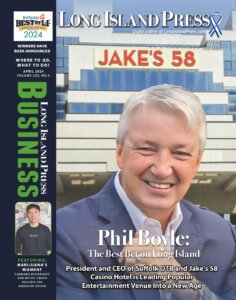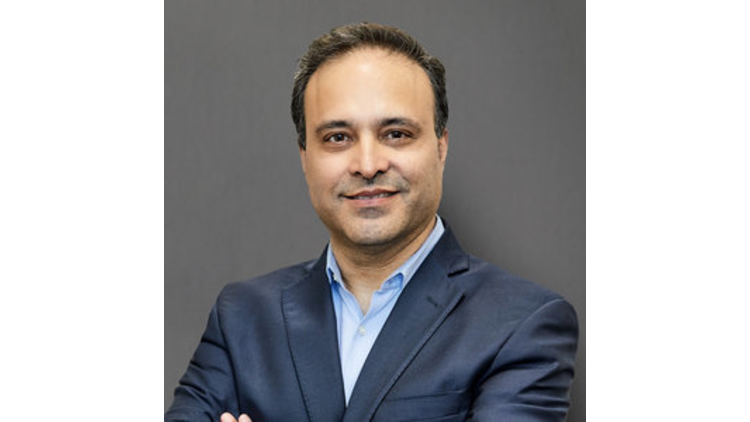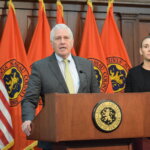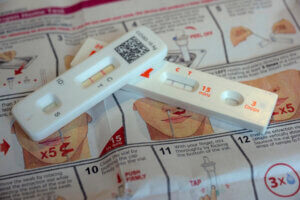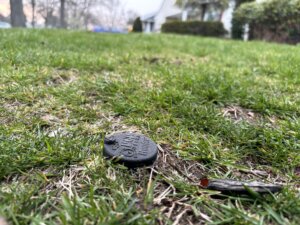Dr. Raj Raina, president, CEO, and owner of Medical Associates, based in Hauppauge, has been taking care of patients — and his practice.
A primary care doctor who runs the six-site, multispecialty practice, he has kept Medical Associates’ doctors, nurses, and staff busy treating COVID-19 patients as he puts his own pay on pause. And he’s not alone among doctors in private practice on Long Island who are making sacrifices to keep their doors open.
“I personally have not taken a paycheck for the last couple of paychecks; I’m living off my savings,” Dr. Raina says, noting that his wife, a nurse, is receiving a paycheck for helping to run the COVID-19 test center at Jones Beach State Park. “Once they opened in Jones Beach, she was one of the first to be there. She’s a coleader there, scheduling patients.”
While healthcare providers and hospitals are on the front lines of the COVID-19 crisis, physicians without the resources of hospitals are facing financial and medical challenges, sometimes making financial sacrifices.
“We’re living right now on income we produced in the past, hoping the government gives us some help,” Dr. Raina says, saying that his 79-person practice didn’t get help from the first tranche of funds. “It’s very hard in our industry to train people.”
Many physician practices face financial troubles, according to a survey by the Medical Society of the State of New York (MSSNY). The society says 83 percent of respondents saw patient volume drop by more than half, while 80 percent’s revenue fell by at least half since the COVID-19 outbreak.
“The impact has devastated practices and the hundreds of thousands of New Yorkers they employ,” says Dr. Art Fougner, president of MSSNY. “Many doctors are working alone or with a skeleton staff.”
More than a quarter had to lay off or furlough more than half of their employees and about two thirds applied for forgivable loans, but most hadn’t received help before the first round of funding closed.
“Our first priority remains to ensure that our patients, through the crisis, can continue to receive the care they need,” Dr. Fougner continues. “But we need to know if our practices can keep their doors open for patients now and in the future.”
Other healthcare providers, also considered essential, are taking steps to keep producing, as CEOs reduce or suspend their compensation or pay employees who are unable to work.
Hauppauge-based American Diagnostic Corporation, which employs 117 on Long Island, makes thermometers, stethoscopes, blood pressure instruments, pulse oximeters used to measure oxygen, and other medical devices.
“Our products are experiencing an unprecedented level of demand unlike anything we’ve experienced in our 35 years,” ADC CEO Marc Blitstein says. “We have shipped nearly 1 million diagnostic instruments to our distributors since mid-February.”
He says about 30 plant workers are on paid leave out of concerns for coronavirus exposure. “We’re utilizing temps where possible and lots of overtime to meet demand,” Blitstein says.
ADC transitioned many workers to paid leave at home, including the elderly and vulnerable, although manufacturing continues, and took measures to make the workplace safer, including spacing, safety equipment, and other steps.
Melville-based Henry Schein CEO Stanley Bergman, who received $14.4 million in compensation last year, including about $1.5 million in salary, isn’t taking a salary from April 6 to June 30. Several other Schein executives are temporarily cutting their salary in half and board members are taking a temporary 25 percent cut.
Other CEOS have been taking cuts or suspending their salary, such as Ron Loveland, president of Summit Safety and Efficiency Solutions in Miller Place.
“I stopped taking a paycheck to be able to pay my team,” Loveland says.
Ernie Canadeo, CEO of The EGC Group in Melville, temporarily stopped taking a salary once he closed the office and cut the rent that he, as landlord, charges his company. Canadeo, whose firm received a forgivable SBA payroll loan, says the loan is “a tremendous help, while business is down substantially.”
The federal government, meanwhile, made it easier for physicians to do virtual visits, increasing patient and provider safety, but Raina said that typically leads to $50 reimbursements.
“We’re mostly getting patients who have COVID-19 infection,” Dr. Raina says, adding that most are virtual visits. “Our revenue came mostly from stress tests, echocardiograms, and allergy tests.”
Dr. Raina is still getting funds from previous work, since insurer payments typically lag two months behind.
“I don’t want to lose employees,” Dr. Raina says. “They know what they’re doing. I would not want to start again. I’ve tried to keep everyone going. If I go through this year without a loss, I will think it is a good thing for me. I’m not sure that’s going to happen, though.”
Related Story: Some Long Island Companies Thrive in Pandemic Economy
For more coronavirus coverage visit longislandpress.com/coronavirus
Sign up for Long Island Press’ email newsletters here. Sign up for home delivery of Long Island Press here. Sign up for discounts by becoming a Long Island Press community partner here.
